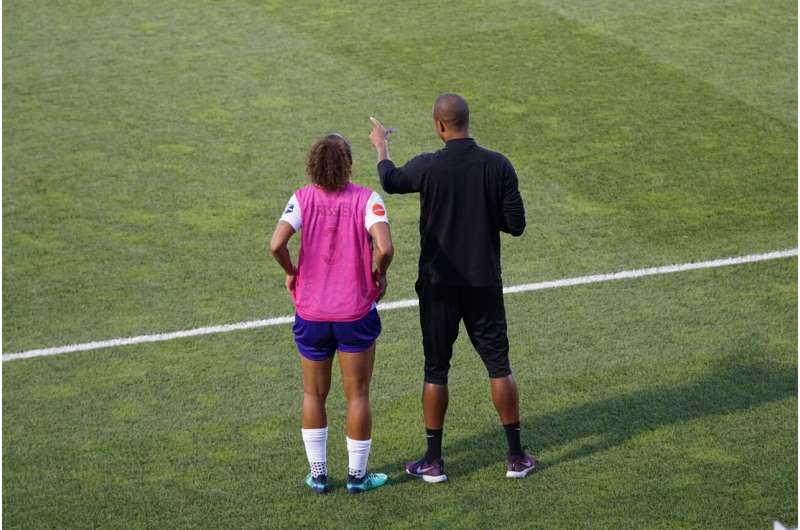This article has been reviewed according to Science X's editorial process and policies. Editors have highlighted the following attributes while ensuring the content's credibility:
fact-checked
peer-reviewed publication
trusted source
proofread
'Malevolent' traits can be important for athletic success—but could hinder athlete-coach relationships

Being self-centered, ruthless and manipulative is believed to help elite athletes achieve glory—but could be negatively impacting relationships with coaches, a new study suggests.
Sports scientists at Nottingham Trent University also found that relationships could suffer when coaches were high in these traits.
The study, which also involved Bangor University, is published in the journal Personality and Individual Differences.
The researchers investigated the personalities and quality of relationships of more than 300 elite athletes and their coaches via a series of established measures. They were looking specifically at a group of personalities known as the "Dark Triad," which consists of narcissism, psychopathy and Machiavellianism.
While these traits are perceived negatively in the general population, they may offer advantages within high-performance settings such as elite sports. Until now, however, it has not been known how these traits might impact the important relationship between athletes and coaches.
The study found that the more self-centered a coach was, or the higher their level of narcissism, the less responsive they were to their athlete's needs. At the same time, if a coach and athlete were similarly self-centered, they would feel less trusting of one another.
When coaches reported high levels of ruthlessness—or psychopathy—the less they liked, were committed to, and were willing to do their best for their athletes, the study found.
Athletes with high levels of ruthlessness, meanwhile, felt less at ease when working with their coach and respected them less.
And when coaches reported a higher ability to manipulate—or greater levels of Machiavellianism—they behaved in a less complimentary manner towards their athletes. Athletes high in this trait became more uncommitted, distant and uncooperative, the research revealed.
"Specific characteristics considered malevolent in social settings are highly relevant in performance sport," said lead author Joseph Stanford, a researcher in Nottingham Trent University's School of Science and Technology.
He said, "High-performance environments can often attract people who feel superior, are ruthless in the pursuit of winning and have a heightened belief they can influence others for their own success.
"It is important to have a positive coach-athlete relationship in order to achieve success. To win, athletes and coaches must perform together under high-pressure, often in demanding and stressful situations. Our findings suggest we need to consider how personalities are likely to interact together in the sporting arena. Additional support for coaches would also allow them to understand how to create effective high-performance relationships."
Nottingham Trent University's Dr. Laura Healy, senior author on the study, said, "Our research shows why some coaches and athletes may struggle to work together—their unique personality traits make it hard to build a positive coach-athlete relationship. Helping coaches and athletes to understand who their partner is and how to work with them could lead to better quality coach-athlete relationships within elite sport contexts, ultimately benefiting performance and sporting experience."
The researchers argue that the findings could be generalized to those in leadership positions and that organizations could consider the influence of leaders' personalities on the people around them in order to maximize effectiveness and reduce friction.
More information: Joseph R. Stanford et al, "There's only room for one of us in this relationship": Examining the role of the dark triad in high-performance dyads, Personality and Individual Differences (2024). DOI: 10.1016/j.paid.2024.112688




















